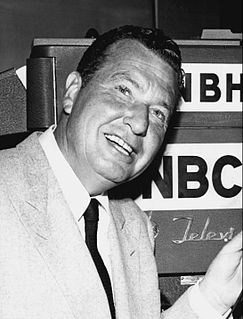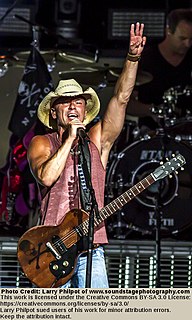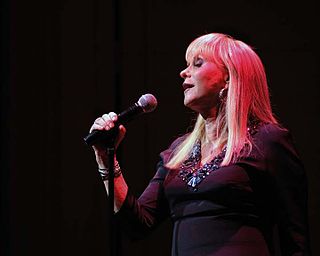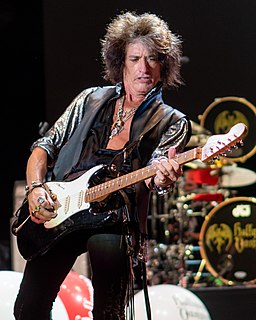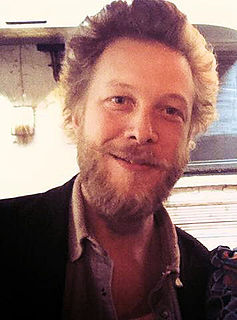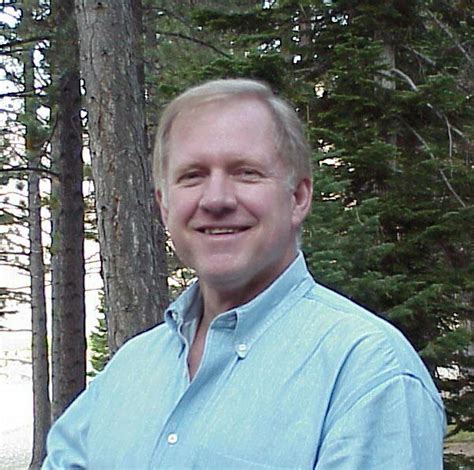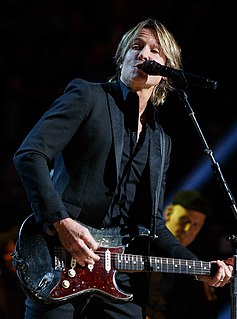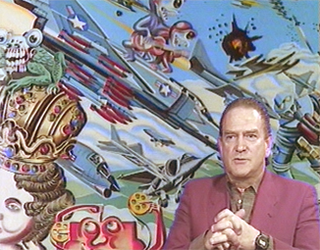A Quote by Phil Harris
I remember seeing the song in some diners on the selection gadget that plays records at the table while you were eating. We were never told if the songs ever got on any charts.
Related Quotes
Early on I was just a kid in a cowboy hat with a bunch of other guys in a room that were putting out some records. Now thank God, in the past 3 or 4 years, when.. it's really hard to burn an image of a face with a song these days. I think that the songs like 'Don't Happen Twice' and 'Young' were songs that helped me do that and I think that 'I Go Back'(did) that even more.
I hadn't played any music since freshman year of college, more than thirty years ago, so I had to relearn everything. I started writing songs. Some were dance and trance songs (I listen to them a lot while I'm writing), and some were love songs, because that after all is what music is about - dancing and trancing and love and love's setbacks.
The records in the house I really remember were, well, Glen Campbell's 'Wichita Lineman' and 'Galveston.' Even as a kid, I knew these songs were glorious. My dad also had records by Merle Haggard, Charley Pride, Waylon Jennings, and then there was also the Eagles and Don Henley. Anything Texas, which includes Don Henley, was big.
It wasn't that the teachers were bad. From what I can remember, they were pretty good. It was about the selection of books. It was about not seeing my young life reflected back to me: my family dynamics, the noise and complexities of my neighborhood, the things I loved, like ice cream trucks and Kool-Aid.
There was so much going on. I remember a very interesting dinner in the studio of [Robert] Rauschenberg. He had convinced Sidney Janis, Leo Castelli, and a third big gallery man to serve us, the artists, at the table. So they were dressed up as waiters, we were sitting at the table, and they were only allowed to sit down at the end of the table for the cognac. This is not possible now.
It was a matter of not seeing the woods for the trees. Glorious songs have been in Ireland forever, but a lot of these were so popular they were sung only by drunken men at weddings. They didn't have any regard for the song at all. So, I picked out 14 songs that I had grown up with, songs with great melodies. After 35 years as a songwriter, I appreciate the value of a good melody because I know how hard it is to write one. So I presented them in a new way, with piano, keyboards, strings, and a contemporary rhythm section. I just treated the melody with a bit of dignity and a bit of style.
I grew up in the time just when cassettes were waning and CDs were growing. And so mix tapes - and not mix CDs - mix tapes were an important part of the friendship and mating rituals of New York adolescents. If you were a girl and I wanted you - to show you I like you, I would make you a 90-minute cassette wherein I would show off my tastes. I would play you a musical theater song next to a hip-hop song next to an oldie next to some pop song you maybe never heard, also subliminally telling you how much I like you with all these songs.
